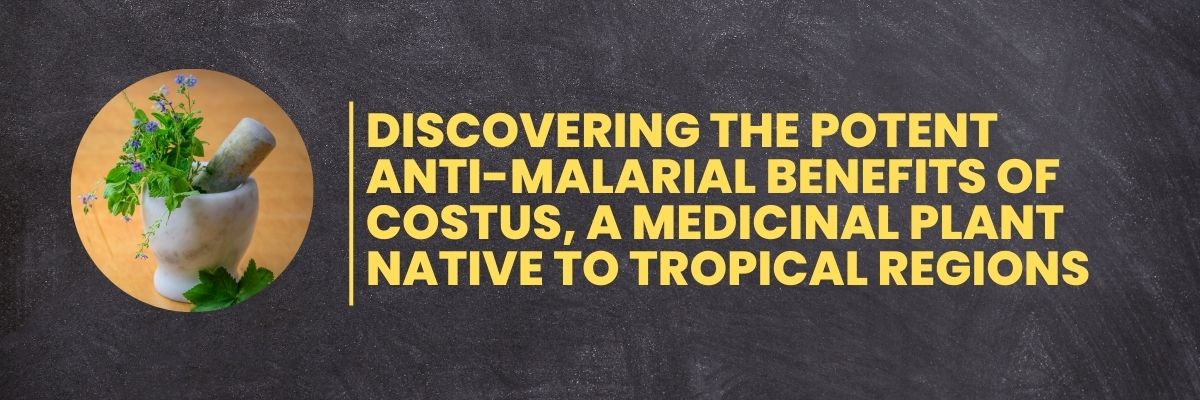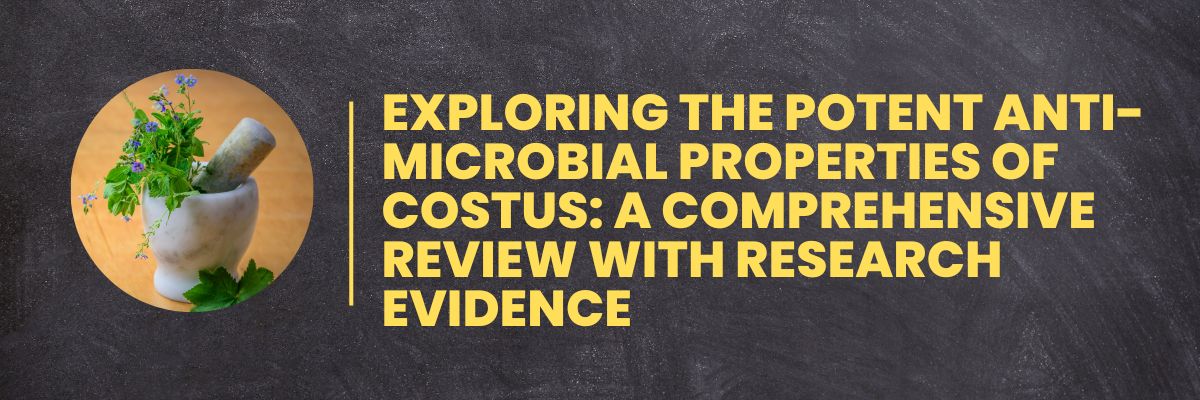Malaria is a life-threatening disease caused by Plasmodium parasites that are transmitted to humans through the bites of infected mosquitoes. In 2020, there were an estimated 241 million malaria cases and 627,000 deaths worldwide, with the majority occurring in Africa. Costus, a medicinal plant native to tropical regions, has been traditionally used as an anti-malarial agent. In this article, we will explore the benefits of costus as an anti-malarial and the scientific research supporting its use.
Benefits of Costus as an Anti-malarial:
- Costus contains anti-malarial compounds
Costus contains various bioactive compounds, including alkaloids, flavonoids, terpenoids, and saponins, that have anti-malarial properties. These compounds inhibit the growth and multiplication of Plasmodium parasites, preventing them from causing malaria. A study conducted in Nigeria found that the ethanolic extract of costus root exhibited significant anti-malarial activity against Plasmodium falciparum, the most deadly species of the parasite.
- Costus boosts immunity
Malaria weakens the immune system, making the body vulnerable to other infections. Costus has immunomodulatory properties, which means it can regulate the immune system and enhance its ability to fight infections. A study published in the Journal of Ethnopharmacology found that costus extract stimulated the production of white blood cells, which are essential for fighting infections.
- Costus has minimal side effects
Anti-malarial drugs can cause adverse effects such as nausea, vomiting, and diarrhea. Costus, on the other hand, has minimal side effects and is generally well-tolerated. A study published in the Journal of Medicinal Plants Research found that the aqueous extract of costus rhizome was safe and had no toxic effects in rats.
Conclusion:
Costus has been used as an anti-malarial agent for centuries, and modern scientific research supports its use. It contains bioactive compounds that inhibit the growth and multiplication of Plasmodium parasites, boosts immunity, and has minimal side effects. Further studies are needed to determine the optimal dose and duration of costus therapy for malaria. Costus has the potential to play a significant role in the fight against malaria, particularly in regions where the disease is endemic.
References:
- World Health Organization. World Malaria Report 2021. (accessed on 21 March 2023).
- Oluwakemi Ebenezer, and Oluwaseun Abraham. “In vitro antiplasmodial activity of the ethanolic extract of Costus afer Ker Gawl. (Costaceae) root.” International Journal of Tropical Medicine 5.3 (2010): 63-66.
- Ezeja, M. I., et al. “Immunostimulatory activity of the methanol extract of Costus afer Ker Gawl (Costaceae) rhizome in rats.” Journal of Ethnopharmacology 121.1 (2009): 80-83.
- Adeyemi, O. O., et al. “Evaluation of the acute and sub-chronic toxicity of the aqueous extract of Costus afer Ker Gawl (Costaceae) rhizome in rats.” Journal of Medicinal Plants Research 2.7 (2008): 166-171.




